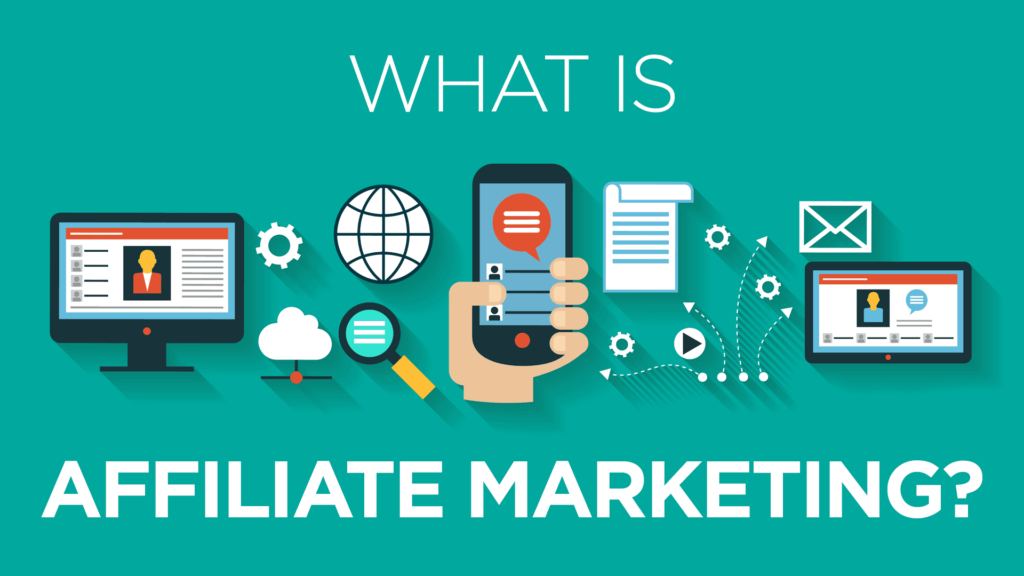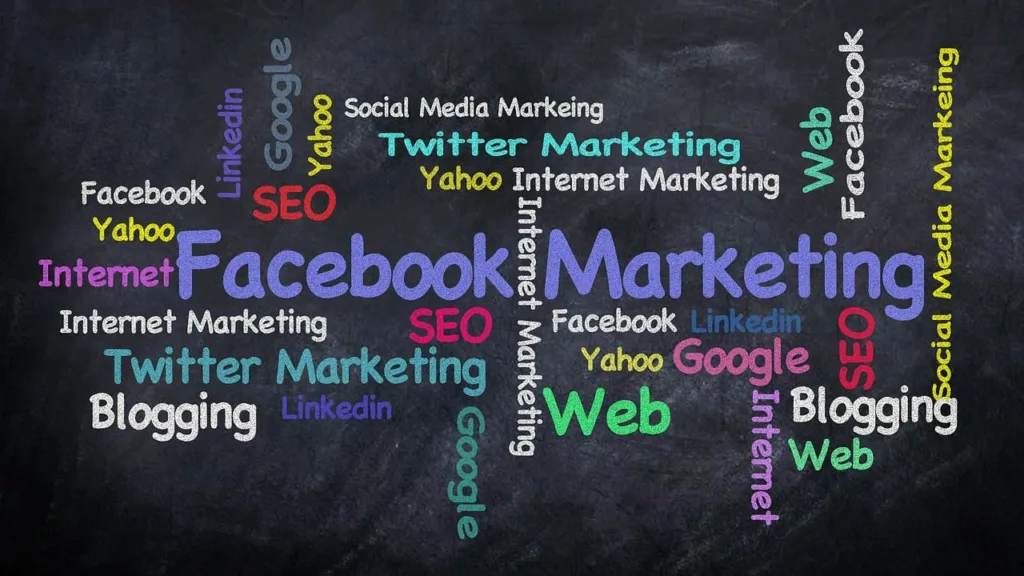
Affiliate marketing has emerged as one of the most popular and effective digital marketing strategies in 2023. In this comprehensive guide, we will delve into the world of affiliate marketing, exploring what it is, how it works, and why it has become a crucial tool for businesses aiming to thrive in the digital landscape. So, let’s get started with this ultimate guide to affiliate marketing!
Table of Contents
Understanding Affiliate Marketing
Affiliate marketing is a performance-based marketing strategy where businesses reward affiliates (publishers or influencers) for driving traffic or sales to their website through the affiliate’s marketing efforts. It operates on a revenue-sharing model, where affiliates earn a commission for each sale or lead generated through their promotional activities.
The concept of affiliate marketing is not new, but with the explosive growth of e-commerce and social media, it has become more prevalent and lucrative than ever. Brands now leverage the vast network of affiliates to expand their reach and gain more customers.
How Affiliate Marketing Works
The mechanics of affiliate marketing involve three primary players: the merchant, the affiliate, and the consumer.
- Merchant: The merchant, also known as the advertiser or retailer, is the party that offers products or services for sale. They create an affiliate program through which affiliates can promote their products and earn commissions for successful referrals.
- Affiliate: The affiliate is the promoter who partners with the merchant to promote their products or services through various marketing channels. Affiliates can be bloggers, influencers, content creators, or even businesses with a relevant audience.
- Consumer: The consumer is the end-user who clicks on the affiliate’s link, visits the merchant’s website, and completes the desired action, such as making a purchase or signing up for a service.
Affiliates use unique tracking links or promo codes to identify the traffic they send to the merchant’s website. When a user makes a purchase or performs the desired action through the affiliate’s link, the affiliate receives a commission based on the predefined terms of the affiliate program.
Benefits of Affiliate Marketing
Affiliate marketing offers several compelling benefits for both merchants and affiliates:
For Merchants
- Cost-Effective Marketing: With affiliate marketing, merchants only pay commissions when a sale or lead is generated, making it a cost-effective advertising method.
- Expanded Reach: Affiliates bring in their own audience, allowing merchants to reach new and diverse customer segments.
- Enhanced Credibility: Positive reviews and endorsements from affiliates can enhance the brand’s credibility and reputation.
For Affiliates
- Passive Income: Affiliates can earn passive income by promoting products they genuinely believe in.
- Low Startup Costs: Starting as an affiliate usually requires minimal investment, as affiliates don’t need to create products or manage inventory.
- Flexible Work Schedule: Affiliates enjoy the freedom to work from anywhere and choose their own working hours.
Choosing the Right Affiliate Program
As an affiliate marketer, choosing the right affiliate program is crucial for your success. Here are some factors to consider when selecting an affiliate program:
- Relevance: Choose products or services that align with your niche or target audience to ensure higher conversion rates.
- Commission Structure: Look for programs with competitive commission rates and clear payment terms.
- Tracking and Reporting: Opt for programs that provide reliable tracking and reporting tools to monitor your performance.
- Support and Resources: Seek programs that offer marketing materials, guides, and dedicated support to help you succeed.
Affiliate Marketing Techniques
There are various affiliate marketing techniques you can employ to drive traffic and boost conversions:
1. Content Marketing

Content creation is an art that demands creativity, research, and a keen understanding of your niche. Your content should be a source of information, inspiration, or entertainment for your audience. Whether it’s an in-depth blog post, an engaging video, an enlightening infographic, or a captivating podcast, the content you produce should offer value that keeps your audience coming back for more.
Creating remarkable content is only half the battle; ensuring it’s discoverable by your target audience is equally crucial. This is where Search Engine Optimization (SEO) comes into play. Conduct thorough keyword research to identify relevant terms and phrases that your audience is searching for. Integrate these keywords organically into your content to enhance its visibility on search engine results pages.
Human beings are hardwired for stories. Crafting narratives that resonate with your audience can forge deep emotional connections and leave a lasting impact. Weave compelling stories into your content, allowing your audience to connect with your brand on a personal level. Whether it’s sharing the journey of your business, highlighting customer success stories, or narrating industry anecdotes, storytelling is a potent tool in your content arsenal.
Consistency is key in content marketing. Regularly publishing fresh, high-quality content keeps your audience engaged and informed. However, variety is equally important. Experiment with different formats, such as blog posts, videos, podcasts, webinars, and more, to cater to different preferences within your audience.
A successful content marketing strategy is never static. Regularly analyze key performance indicators (KPIs) such as engagement metrics, website traffic, and conversion rates. Use these insights to refine your strategy, focusing on what’s resonating with your audience and adjusting course where necessary.
Create valuable and engaging content, such as blog posts, product reviews, or how-to guides, to attract potential customers and encourage them to make a purchase through your affiliate links.
2. Social Media Marketing

Social media marketing is not just a trend; it’s a fundamental shift in the way businesses communicate with their customers. With billions of active users across various platforms, social media offers an unparalleled opportunity to connect, engage, and influence your target audience. Whether you’re a small startup or an established enterprise, harnessing the potential of social media can elevate your brand’s online presence to new heights.
In the world of social media, visuals speak louder than words. High-quality images and videos can stop users mid-scroll, enticing them to explore your content further. Invest in visually appealing content to leave a lasting impression.
Utilize the power of social media platforms to share affiliate links, reach a broader audience, and build a loyal following.
Social Media Marketing Platforms
Facebook: Building a Community
Facebook remains a social media giant with diverse audience demographics. Create a Facebook Page to interact with your audience, share updates, and build a community around your brand.
Instagram: Showcasing Visual Excellence
Instagram’s visual-centric platform is ideal for businesses with stunning products or services. Utilize Instagram Stories, reels, and IGTV to showcase your offerings creatively.
Twitter: Real-time Engagement
Twitter thrives on real-time engagement. Use concise and impactful messages to join trending conversations, share industry insights, and directly interact with your audience.
LinkedIn: Professional Networking
LinkedIn caters to professionals and B2B interactions. Share industry articles, participate in groups, and establish your brand as an industry thought leader.
YouTube: The Power of Video Marketing
YouTube is the second-largest search engine after Google. Create informative and entertaining videos to educate your audience, demonstrate product features, and share valuable insights.
3. Email Marketing

Every successful email marketing campaign begins with a clear objective. Whether you aim to promote a new product, nurture leads, or drive traffic to your website, defining your goals will shape your content and approach.
The foundation of email marketing success lies in your subscriber list. Focus on organic growth through website sign-ups, content offers, and events to ensure that your list consists of genuinely interested individuals.
Not all subscribers have the same interests or needs. Segment your list based on demographics, behaviors, or purchase history to send tailored content that resonates with specific segments.
Choose an email marketing platform that aligns with your needs and capabilities. Look for features such as automation, segmentation, and analytics to streamline your campaigns.
Build an email list and send newsletters or product recommendations to your subscribers, using your affiliate links strategically.
4. SEO and Keyword Optimization
Keywords are the building blocks of SEO. They are the words and phrases that users type into search engines when looking for information, products, or services. Keywords can be categorized into short-tail (generic) and long-tail (specific) keywords, each serving a unique purpose in your SEO strategy.
Thorough keyword research is the bedrock of successful SEO. It involves identifying relevant keywords that align with your business and resonate with your target audience. Utilize keyword research tools to uncover search volume, competition, and user intent, allowing you to make informed decisions.
Optimize your content for search engines with relevant keywords, making it easier for users to find your affiliate content organically.
Tips for Affiliate Success
Achieving success as an affiliate marketer requires dedication, strategy, and continuous improvement. Here are some valuable tips to help you excel in the affiliate marketing world:
1. Choose Quality Over Quantity
Focus on promoting high-quality products or services that genuinely add value to your audience’s lives, even if it means promoting fewer items.
2. Be Transparent and Authentic
Honesty is key in affiliate marketing. Clearly disclose your affiliate relationships to your audience to maintain trust and credibility.
3. Test and Track
Continuously experiment with different promotional methods and analyze their performance. Track your results to identify what works best for you.
4. Stay Updated with Industry Trends
The affiliate marketing landscape is ever-changing. Stay informed about the latest trends, tools, and techniques to stay ahead of the competition.
The Future of Affiliate Marketing
As we move further into the digital age, affiliate marketing is expected to continue thriving. Advancements in technology, such as AI-powered affiliate platforms and improved tracking mechanisms, will further streamline the affiliate marketing process.
Additionally, the rise of influencer marketing and the growth of niche markets will open up new opportunities for affiliates and merchants alike.
In conclusion, affiliate marketing has become a powerhouse in the digital marketing realm, offering a win-win situation for both merchants and affiliates. By creating meaningful partnerships and delivering valuable content to the right audience, affiliate marketers can undoubtedly leave other websites behind and reach new heights of success.
There are many ways to earn money online. If you are interested in learning top 25 ways to earn money online, explore the blogs here.
If you’re looking to harness the potential of affiliate marketing for your business, now is the perfect time to get started. Embrace the power of this performance-based marketing strategy, and watch your online presence soar!




One thought on “What Is Affiliate Marketing? A Comprehensive 2023 Guide To Getting Started”
Your positivity and optimism are contagious It’s evident that you genuinely care about your readers and their well-being